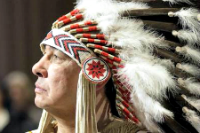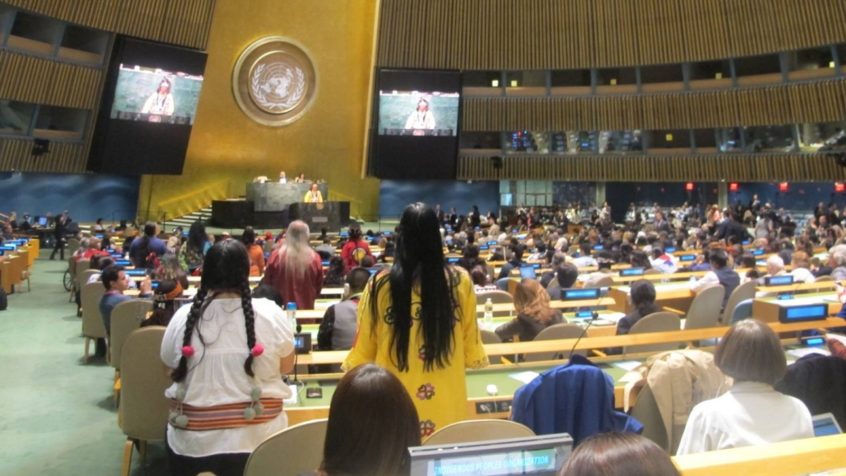Indigenous Peoples and the Addis Ababa Action Agenda
The AAAA acknowledges the continued existence of inequality and the fact, that some groups are still left behind, among them indigenous peoples who are most often in a situation of disadvantage compared to the majority groups in the countries where they live. To address this, the Agenda also recognizes the importance of听building social protection systems that reach all, including indigenous peoples. Finally, the Agenda emphasizes the need to build partnership and cooperation to achieve the sustainable development goals and in this regards, recognizes the value of traditional knowledge, innovations and practices of indigenous peoples.
Specific references to indigenous peoples in the听Addis Ababa Action Agenda. To see the entire outcome document, click
Recognizing inequality and exclusion
4. Despite these gains, many countries, particularly developing countries, still face considerable challenges, and some have fallen further behind. Inequalities within many countries have increased dramatically. Women, representing half of the world鈥檚 population, as well as indigenous peoples and the vulnerable, continue to be excluded from participating fully in the economy. While the Monterrey agenda has not yet been fully implemented, new challenges have arisen, and enormous unmet needs remain for the achievement of sustainable development. The 2008 world financial and economic crisis exposed risks and vulnerabilities in the international financial and economic system. Global growth rates are now below pre-crisis levels. Shocks from financial and economic crises, conflict, natural disasters and disease outbreaks spread rapidly in our highly interconnected world. Environmental degradation, climate change, and other environmental risks threaten to undermine past successes and future prospects. We need to ensure that our development efforts enhance resilience in the face of these threats.
On social protection:听
12. Delivering social protection and essential public services for all. To end poverty in all its forms everywhere and finish the unfinished business of the Millennium Development Goals, we commit to a new social compact. In this effort, we will provide fiscally sustainable and nationally appropriate social protection systems and measures for all, including floors, with a focus on those furthest below the poverty line and the vulnerable, persons with disabilities, indigenous persons, children, youth and older persons. We also encourage countries to consider setting nationally appropriate spending targets for quality investments in essential public services for all, including health, education, energy, water and sanitation, consistent with national sustainable development strategies. We will make every effort to meet the needs of all communities through delivering high-quality services that make effective use of resources. We commit to strong international support for these efforts, and will explore coherent funding modalities to mobilize additional resources, building on country-led experiences.
On partnerships and traditional knowledge:
117. We will encourage knowledge-sharing and the promotion of cooperation and partnerships between stakeholders, including between Governments, firms, academia and civil society, in sectors contributing to the achievement of the sustainable development goals. We will promote entrepreneurship, including through supporting business incubators. We affirm that regulatory environments that are open and non-discriminatory can promote collaboration and further our efforts. We will also foster linkages between multinational companies and the domestic private sector to facilitate technology development and transfer, on mutually agreed terms, of knowledge and skills, including skills trading programmes, in particular
to developing countries, with the support of appropriate policies. At the same time, we recognize that traditional knowledge, innovations and practices of indigenous peoples and local communities can support social well-being and sustainable livelihoods and we reaffirm that indigenous peoples have the right to maintain, control, protect and develop their cultural heritage, traditional knowledge and traditional cultural expression.


